From its colonial roots to its current political structure, Curaçao’s journey towards autonomy has been a fascinating one. This beautiful island, which is nestled in the Southern Caribbean Sea, has changed from being a Dutch colony to a sovereign state within the Kingdom of the Netherlands.
Balancing its historical ties with the Netherlands and the pursuit of a distinct political identity, the Curaçao political structure reflects a careful interplay between autonomy and shared responsibilities.
With its parliamentary representative democracy, Curaçao’s government and parliament play vital roles in shaping the island’s governance. While challenges such as economic dependency and environmental factors exist, Curaçao also has opportunities to leverage its cultural heritage, strategic location, and sector development for a prosperous future.
As Curaçao continues to navigate its unique position within the Kingdom, its ongoing political reforms and commitment to preserving its autonomy set the stage for an exciting and promising future.
Colonial Era
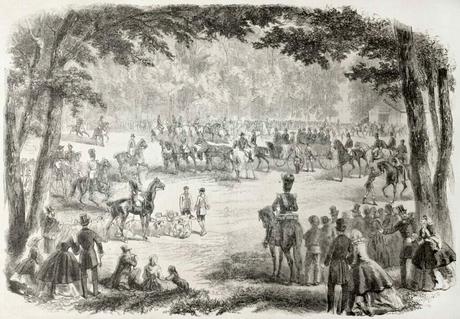
Curaçao, a picturesque island in the Southern Caribbean Sea, has a colorful and layered history contributing to its unique political structure. Its earliest European influence traces back to 1499 when Spanish explorer Alonso de Ojeda arrived, but it was in 1634 that the Dutch West India Company took possession, marking the beginning of Dutch colonial rule.
Under the Dutch colonial era, Curaçao grew into a strategic trading hub due to its location. While the island initially did not yield the gold the Dutch had hoped for, it had a naturally deep and well-protected harbor, making it ideal for trade. The capital city, Willemstad, was established, and soon Curaçao was a bustling hub of the slave trade, a grim chapter of its history.
While Curaçao was gaining economic importance, its political development under Dutch rule followed the familiar pattern of colonial governance. The Dutch monarch, represented by a governor on the island, held absolute power. The local populace had limited participation in the governance, with most decisions made by the colonial administrators sent from the Netherlands.
Despite several changes in European powers and a brief British control, Curaçao remained largely under Dutch rule, cultivating a political culture deeply intertwined with its colonial past. The political identity of the island evolved through these centuries, bearing the imprint of Dutch colonial influence and the distinct culture of the island inhabitants, forming a unique amalgamation.
Path to Autonomy
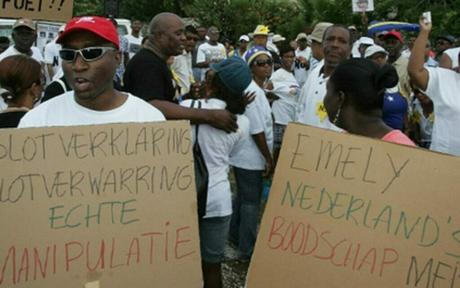
The journey towards autonomy was a long and complex process for Curaçao. Following World War II, there was a global shift towards decolonization, and like many other colonies, Curaçao too started to desire a change. The islanders wanted to maintain their relationship with the Netherlands but sought greater autonomy.
The Netherlands, Suriname, and the Netherlands Antilles were made into an independent kingdom in 1954 according to the Charter for the Kingdom of the Netherlands. The Netherlands Antilles included Curaçao and several other Caribbean islands. This charter was significant as it was the first major step towards autonomy for Curaçao, although full autonomy was not yet achieved.
The following decades saw a continuous dialogue between Curaçao and the Dutch government for more self-governance. A landmark in this journey was the 2005 referendum, where a slight majority voted for a new constitutional status within the Kingdom. This led to the dissolution of the Netherlands Antilles and birthed the new political entity – Curaçao, in 2010.
Since October 10, 2010, known as ’10-10-10′, Curaçao has been an autonomous country within the Kingdom of the Netherlands. This day was a turning point in Curaçao’s history as it represented the completion of the island’s protracted journey toward autonomy.
Current Political Structure
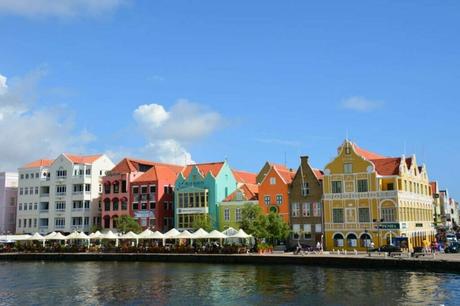
The political structure of Curaçao today mirrors the balance it has sought between autonomy and retaining links with the Kingdom of the Netherlands. As an autonomous country, Curaçao has its own government responsible for most internal affairs. The Dutch monarch remains the head of state, represented by a governor, but the real power lies with the local government.
Curaçao’s political system is a parliamentary representative democratic country. The governor appoints ministers to the Cabinet of Curaçao on the prime minister’s advice, and the prime minister is the head of state. The Staten (parliament) of Curaçao, with its 21 members, plays a key role in the island’s governance.
The members of the Staten are elected every four years, embodying the democratic nature of the island’s political system. The Dutch government is still responsible for defense and foreign policy, but Curaçao enjoys a high degree of autonomy in its internal matters.
What is unique about Curaçao’s political structure is this balancing act – the careful interplay between maintaining ties with its colonial past and the pursuit of a unique political identity. This blend has shaped the island’s contemporary political fabric and continues to influence its trajectory.
Curaçao’s Historical Ties and Political Identity
Curaçao’s political structure is intricately woven with its colonial past and the pursuit of a distinct political identity. The island’s historical ties with the Kingdom of the Netherlands have significantly influenced its present-day political fabric. While Curaçao is an autonomous country, it has chosen to retain links with the Dutch monarchy, with the Dutch monarch serving as the head of state through a representative governor. This arrangement allows Curaçao to maintain its historical connection while exercising a significant degree of local governance.
The Role of the Parliament and Government
At the core of Curaçao’s political system is a parliamentary representative democracy. The governor appoints ministers to the Cabinet of Curaçao on the basis of the Prime Minister’s suggestion. The Prime Minister serves as the head of government and heads the Cabinet. The Staten, the island’s parliament, consisting of 21 elected members, plays a vital role in shaping Curaçao’s governance.
The periodic elections, which are held every four years and give the people of Curaçao a role in deciding the island’s course, demonstrate the democratic nature of the political system.
Autonomy and Shared Responsibilities
Curaçao’s political structure strikes a delicate balance between autonomy and shared responsibilities with the Dutch government. While Curaçao has a considerable degree of autonomy in handling internal affairs, the Dutch government remains responsible for defense and foreign policy matters. This arrangement allows Curaçao to leverage its self-governance capabilities while benefiting from the support and security provided by its association with the Kingdom of the Netherlands.
The interplay between autonomy and shared responsibilities continues to shape Curaçao’s political trajectory, reflecting the island’s unique position and aspirations within the broader political landscape.
Challenges and Opportunities
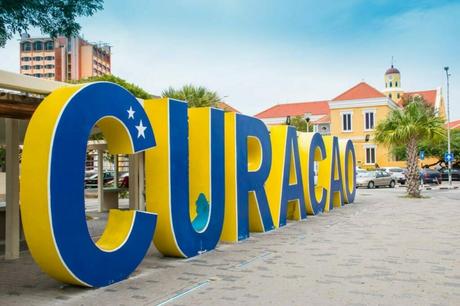
The road to autonomy and the current political structure of Curaçao presents both challenges and opportunities for the island. One of the significant challenges is managing its economy. While Curaçao is autonomous, it relies heavily on the Dutch government for financial support.
Another challenge is navigating the complexities of being a small autonomous nation within a larger kingdom. Maintaining good relations with the Dutch government, while asserting its autonomy, can sometimes lead to tension. Also, being an island, Curaçao has its unique set of logistical and environmental challenges that directly influence its governance.
On the other hand, autonomy brings opportunities. With its rich cultural legacy and advantageous position, Curaçao has the potential to establish a distinctive identity on the international stage. It also has an opportunity to develop its sectors, such as tourism and offshore finance, and chart its own path of development.
And last, Curaçao benefits from extra security and international representation as a result of being a member of the Kingdom of the Netherlands. Balancing these opportunities and challenges is an ongoing process for Curaçao, influencing its political, social, and economic trajectory.
Challenges
- Economic Dependency: Curaçao’s reliance on financial support from the Dutch government poses a challenge to its autonomy. The island needs to diversify its economy and lessen its reliance on outside aid.
- Maintaining Autonomy: Navigating the delicate balance between asserting autonomy and maintaining a cooperative relationship with the Dutch government can be challenging. Curaçao must ensure that its decisions align with its own interests while respecting the obligations and agreements within the Kingdom of the Netherlands.
- Logistical and Environmental Factors: As an island, Curaçao faces unique logistical challenges in terms of transportation, trade, and infrastructure development. Additionally, it must deal with environmental issues including safeguarding its coastal regions, controlling trash disposal, and reducing the effects of climate change on its delicate ecosystems.
Opportunities
- Cultural Heritage: Curaçao has a rich and diverse cultural heritage stemming from its multicultural history. This provides an opportunity to promote cultural tourism, preserve traditional practices, and showcase the island’s unique identity to the world.
- Strategic Location: Curaçao, which is in the southern Caribbean, is in a prime location for commerce, business, and tourism. Due to its closeness to South America and well-established port infrastructure, it is a popular travel and business destination worldwide.
- Sector Development: Autonomy allows Curaçao to chart its own path of development and prioritize sectors that align with its strengths and goals. The island can focus on expanding its tourism industry, developing offshore financial services, promoting renewable energy initiatives, or fostering innovation and technology-based industries.
- International Representation: Being part of the Kingdom of the Netherlands provides Curaçao with a level of security and international representation. It allows the island to participate in international forums and benefit from the diplomatic networks and support of the Dutch government.
Careful preparation, teamwork, and a long-term outlook are required to strike a balance between these potential and obstacles. Curaçao’s government and its people continue to work towards creating a sustainable and prosperous future for the island while preserving its autonomy and unique cultural identity.
Curaçao’s Influence in the Kingdom
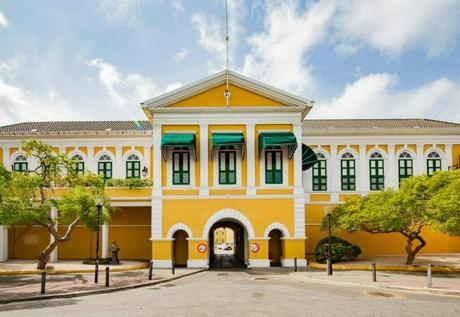
Curaçao, despite its size and geographical distance, plays a significant role within the Kingdom of the Netherlands. Its strategic location in the Caribbean Sea enhances the Kingdom’s global reach, connecting it to the Americas. Moreover, as an autonomous country, Curaçao contributes to the Kingdom’s multilateral identity, showcasing the Dutch commitment to democratic values and self-governance.
Being part of the Kingdom also allows Curaçao to punch above its weight in international affairs. While it doesn’t directly participate in foreign policy decision-making, its voice is indirectly represented through the Kingdom in forums like the United Nations. The relationship is also economic, with the Netherlands providing financial support and resources, ensuring the island’s economic stability.
Future Prospects
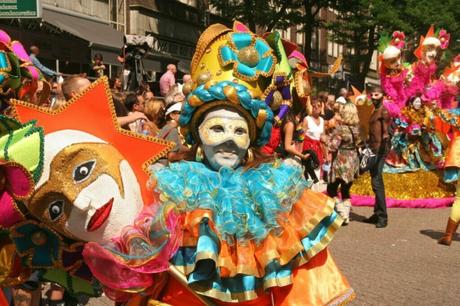
Looking ahead, Curaçao faces an exciting, albeit challenging future. With autonomy comes the responsibility of shaping its future, including potential political reforms. There is a continuous dialogue on refining the political system, such as electoral reform, to better reflect the island’s unique needs and ensure efficient governance.
Furthermore, Curaçao has the chance to establish itself as a key participant in the Caribbean area by capitalizing on its rich cultural history, democratic ideals, and advantageous location. This future will undoubtedly be shaped by how effectively Curaçao can balance its autonomy with the benefits of being part of the Kingdom, a balancing act central to the island’s political trajectory.
Political Reforms
Political changes will be extremely important in determining the future of Curaçao as the island moves forwardElection reform is one area of concentration, with the goal of establishing a more inclusive and representative political system. This reform seeks to address any discrepancies and enhance the system’s fairness, allowing for a more accurate reflection of the diverse needs and aspirations of the island’s population.
By refining the electoral process, Curaçao aims to strengthen its democracy and build trust in the political system.
In addition to electoral reform, there is an ongoing dialogue about other potential political changes. Discussions revolve around issues such as decentralization, where power and decision-making authority could be distributed more effectively across the island.By enabling local communities to actively participate in developing the policies that directly affect their lives, this strategy would empower local communities.
Curaçao works to build a governance system that is receptive, responsible, and capable of successfully handling the possibilities and problems of the future by accepting political changes and participating in open dialogues.
Leveraging Cultural Heritage and Values
Curaçao’s rich cultural heritage and democratic values provide a strong foundation for its future endeavors. With influences from indigenous, European, and African traditions, the island boasts a dynamic and diversified civilization that distinguishes it from other Caribbean nations. By embracing and promoting this cultural diversity, Curaçao can position itself as a cultural hub, attracting visitors and investors alike. The island’s economy will benefit from the preservation and celebration of its legacy, which will also give its citizens a sense of pride.
Strategic Location and Economic Opportunities
Businesses and investors are drawn to Curaçao because of its advantageous position in the Caribbean. The island can capitalize on its proximity to major shipping routes, acting as a gateway for trade and commerce. By fostering a business-friendly environment, Curaçao can encourage international investments and stimulate economic growth.
Additionally, the growth of industries like tourism, technology, and renewable energy might open up new possibilities for job creation and sustainable development. Curaçao has the potential to become a major role in the Caribbean area, contributing to its overall wealth and growth, with careful planning and smart alliances.
Comparison with other Caribbean Countries
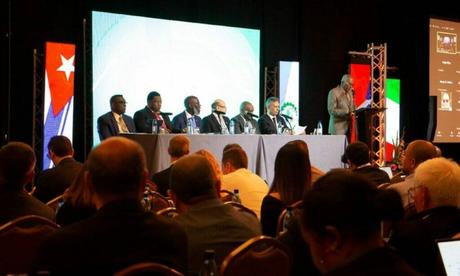
Curaçao’s political journey offers a unique case study in the Caribbean. Unlike many Caribbean nations that gained full independence, Curaçao opted for a path balancing autonomy and affiliation. This model distinguishes it from countries like Jamaica and Trinidad and Tobago, which became fully independent from their colonial powers.
It is comparable to other Dutch Caribbean islands like Aruba and Sint Maarten, though, which also gained independence and joined the Kingdom of the Netherlands. Yet, each island’s political journey and structure reflect their unique circumstances and historical experiences. In this diverse Caribbean tapestry, Curaçao’s story provides a compelling exploration of an alternative post-colonial political path.
Curacao Political Structure FAQ
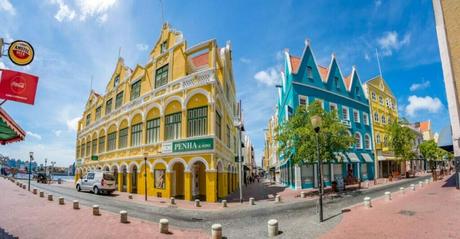
What is the political system of Curaçao?
Curaçao operates under a parliamentary representative democracy as its political system. The Prime Minister serves as the leader of the island’s government, which is in charge of the majority of domestic matters. The Cabinet of Curaçao consists of ministers appointed by the governor, and the island’s governance is shaped by the Staten, the parliament of Curaçao, which consists of 21 elected members.
Who governs Curaçao?
Its own government, which functions within the framework of the Kingdom of the Netherlands, is in charge of Curaçao. The Prime Minister serves as the head of government, leading the Cabinet of Curaçao. While the Dutch monarch remains the head of state, represented by a governor, the real power lies with the local government in Curaçao.
Is Curaçao self-governed?
Curaçao is a sovereign state inside the Kingdom of the Netherlands and has its own government. It has its own government and is responsible for most internal affairs. Curaçao has a high degree of internal autonomy, even if the Dutch government is still in charge of military and foreign policy issues. This arrangement allows Curaçao to maintain its self-governance while maintaining ties with the Kingdom of the Netherlands.

